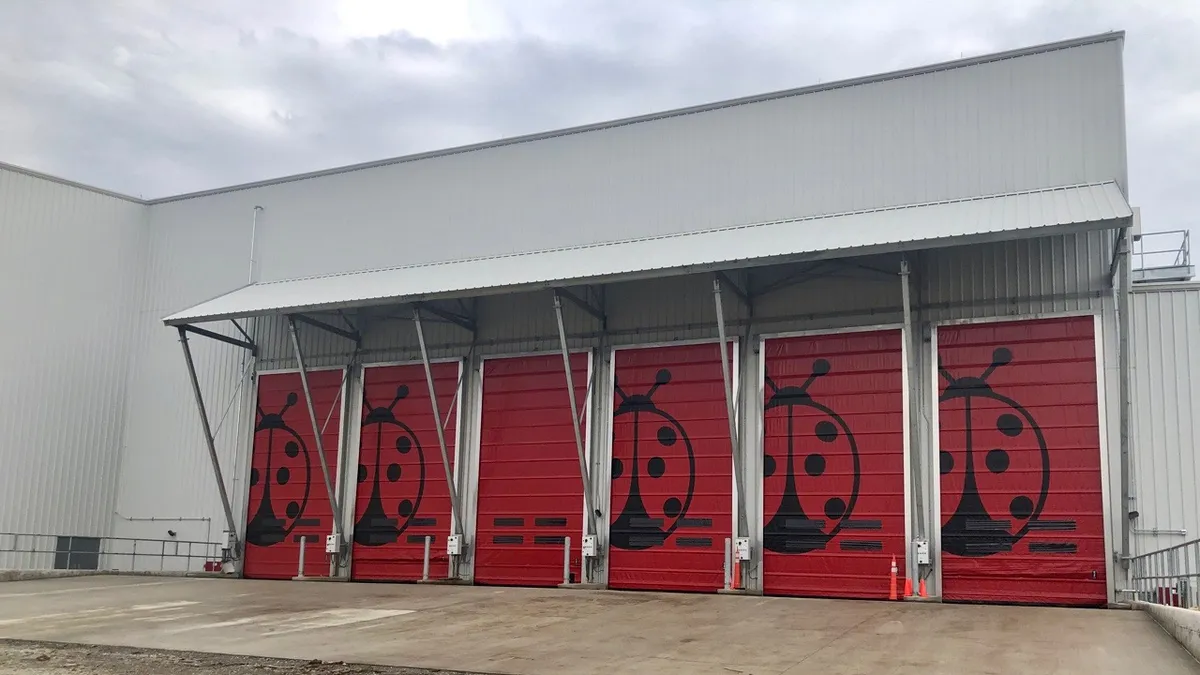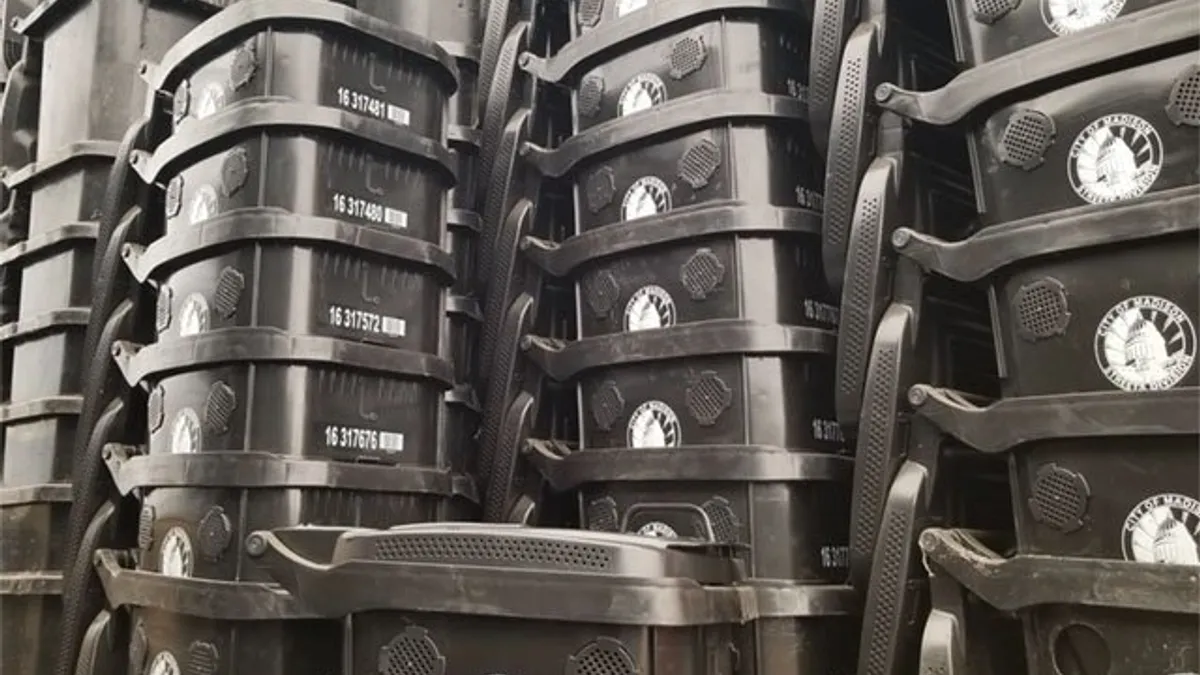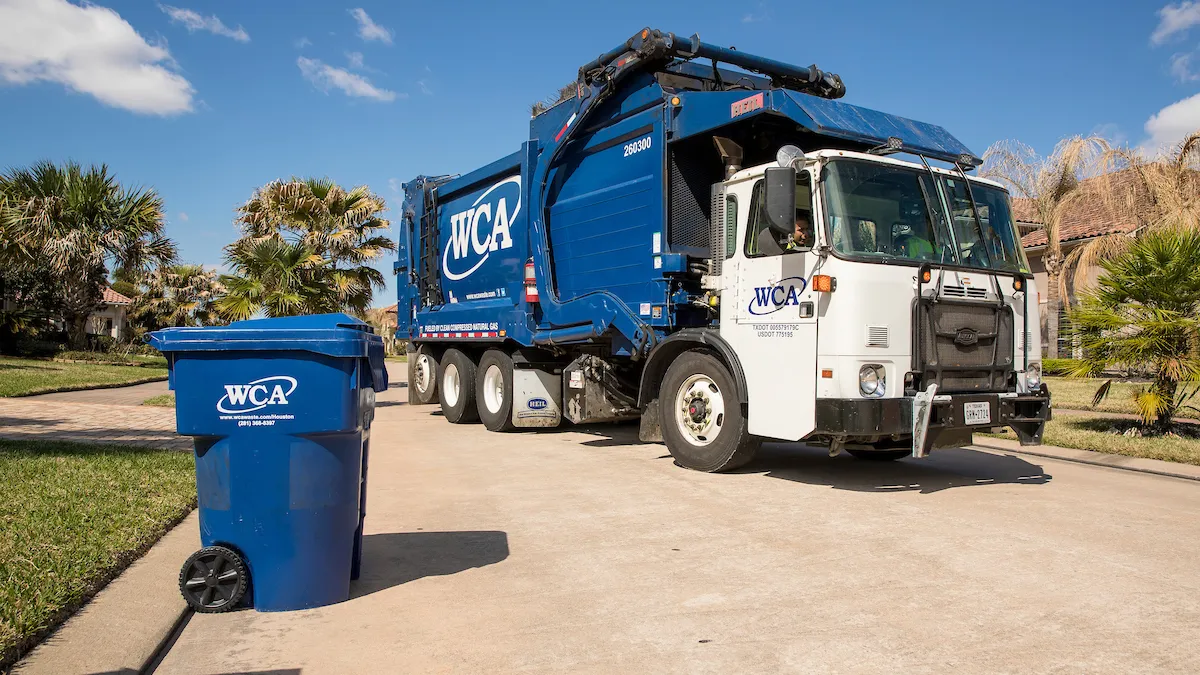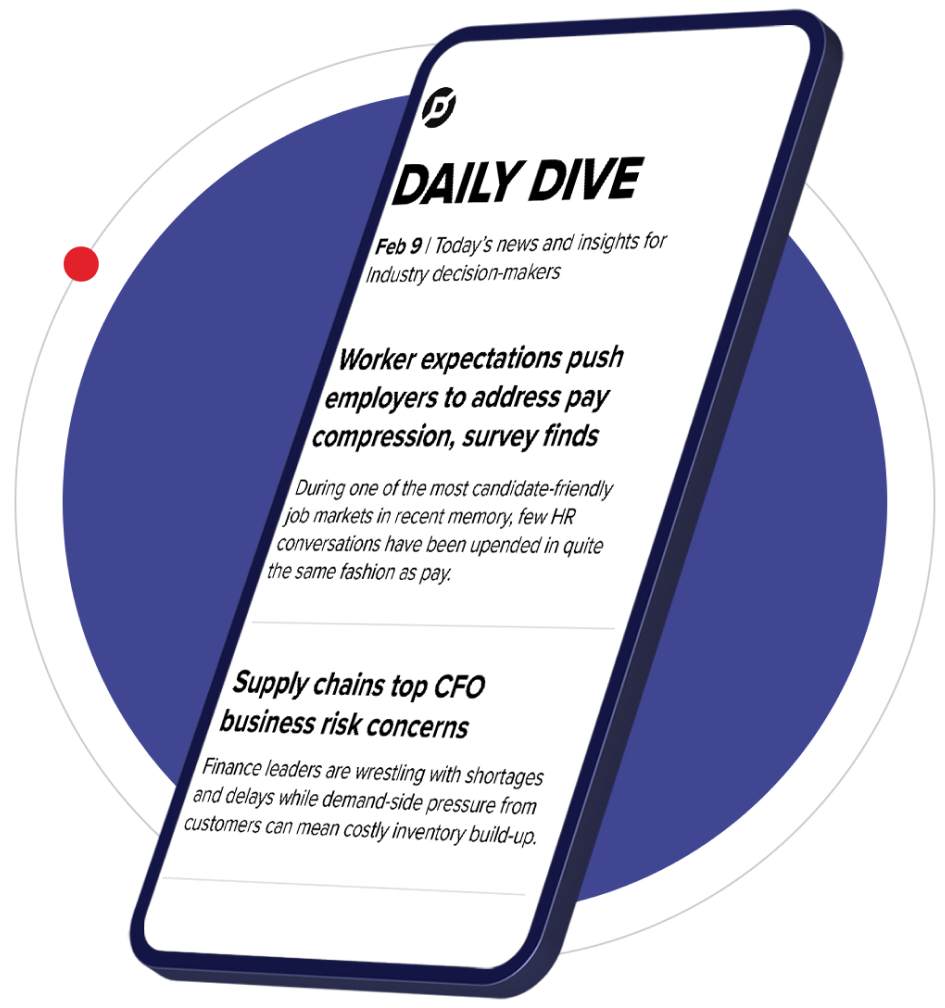Organics: Page 26
-
Deep Dive
Disputed ground: The future of landfill gas-to-energy
Gas capture at landfills creates electricity and revenue, but also has economic and environmental disadvantages.
By Max Witynski • July 12, 2019 -
Connecticut bag ban spurs contentious food waste debate
One of the year's more mildly worded state bag bans was prefaced by heated discussion around whether compostable products should be exempt.
By Cole Rosengren • July 11, 2019 -
Q&A
Local governments may have more recycling power than they realize
Neil Seldman of the Institute for Local Self-Reliance has long been a proponent of grassroots policymaking. He shares examples of cities and counties taking the lead on glass, organics and more.
By Cole Rosengren • July 10, 2019 -
Boston casts wide net for organics options, including in-sink
The city's first move on its "zero waste" plan indicates large-scale ambitions. Two new RFPs for curbside food and textile collection also serve as a reminder of current budget constraints.
By Cole Rosengren • July 9, 2019 -
Report: Supply chains cause 40% of food waste in North America
Companies and countries will need better data as they move forward with food waste reduction plans, according to data from the United Nations' Food and Agriculture Organization.
By Matt Leonard • July 2, 2019 -
Food waste is piling up. How are manufacturers responding?
More than 1.6 billion tons of food go to waste annually, representing $1.2 trillion in value and a third of all global food production — and according to a 2018 report, it's getting worse.
By Craig Guillot • July 2, 2019 -
ISRI members get preliminary injunction from California reporting law
An upcoming law requiring new recycling and composting data has been challenged by scrap recyclers over various concerns, including the classification of material as "solid waste."
By Rubi Rajbanshi • Updated July 17, 2019 -
New Jersey passes food waste bill favoring landfills and WTE
A bill once intended to promote diversion to compost and digestion facilities will now allow unique exemptions due to lobbying from landfill and incinerator operators.
By Cole Rosengren • Updated June 28, 2019 -
Deadly day for workers refocuses spotlight on industry safety progress
Three unrelated June 13 fatalities across multiple states are the latest reminder that top-down policy fixes may not be able to drive fundamental changes in safety culture.
By Cole Rosengren • June 25, 2019 -
Boston finally reaches recycling deal with Casella
Covanta and Wheelabrator will also retain residential waste contracts. Both deals may be regional bellwethers of higher prices to come.
By Cole Rosengren • June 24, 2019 -
Q&A
BioHiTech Global sees new MBT facility as a model for Northeast disposal crunch
Entsorga West Virginia, jokingly referred to as "Waste Disneyland," is described as a complement to limited regional landfills. Waste Dive spoke with the executive team about growth plans.
By Cole Rosengren • June 20, 2019 -
Boston aims for 80% recycling rate by 2035, plans organics pilot
A new "zero waste" plan outlines 30 recommendations involving food waste, textiles, recycling education and more.
By Cole Rosengren • June 19, 2019 -
Survey: California will need dramatic infrastructure expansion to meet organics goals
CalRecycle research estimates the state will require upward of 12-14 million tons of annual processing capacity to meet upcoming targets.
By Rubi Rajbanshi • June 13, 2019 -
US PIRG calls for expansion of composting programs
According to a new report, composting programs could reduce the amount of waste sent to U.S. landfills and incinerators by at least 30%, yielding various agricultural, public health and climate benefits.
By Rina Li • June 13, 2019 -
Madison, Wisconsin declares curbside organics pilot a success
The eight-week pilot, which followed a larger canceled program, pulled in more than four tons of material and experienced limited contamination issues.
By Max Witynski , Cole Rosengren • Updated Sept. 30, 2019 -
Doubt and discord ahead of New York franchise bill introduction
The much-anticipated legislation launches today after years of planning, but it likely won't be what the city's Department of Sanitation envisioned.
By Cole Rosengren • Updated May 30, 2019 -
Conversations with execs from 8 key industry companies
Catch up on Waste Dive's interviews with Waste Management, Republic Services, Waste Connections, GFL Environmental, Covanta, WCA Waste, FCC Environmental and Rubicon Global from WasteExpo 2019.
By Waste Dive Team • May 24, 2019 -
FDA backs 'Best if used by' voluntary date labeling for food products
The agency's position reflects that of industry groups — including the Grocery Manufacturers Association and the Food Marketing Institute, which have advocated for simplifying labels.
By Cathy Siegner • May 24, 2019 -
Ohio county outlines food waste reduction plans, potential curbside pilot
According to a recent report backed by the Solid Waste Authority of Central Ohio, food waste costs Franklin County an estimated $106 million in economic loss per year.
By Catelyn Scholwinski • May 23, 2019 -
Q&A
Straight talk with WCA Waste CEO Bill Caesar
One of the industry's largest private operators discusses satisfaction with the company's current geography, pressures on landfill operations and why carbon pricing is likely inevitable.
By Cole Rosengren • May 21, 2019 -
Column
Scrap Collector: Plastic's 'hidden' climate impacts revealed
Plus: Six-foot-high pile of unopened Amazon Go meals and groceries discovered in Seattle landfill, and Philippines recalls ambassador to Canada over ongoing illegal waste standoff.
By Rina Li • May 17, 2019 -
Department of Energy awards $73M for biofuel and waste projects
Research and development funding will go to 35 projects, including multiple projects focused on anaerobic digestion and plastics recycling.
By Cody Ellis , Cole Rosengren • Updated Oct. 3, 2019 -
Republic's solution to the California 'organics challenge'
Spurred by a commercial food waste recycling mandate, Republic Services is eyeing infrastructure investments in the state. The company's national director of organics operations recently gave Waste Dive a tour of one new approach.
By Cole Rosengren • May 7, 2019 -
Q&A
LA Sanitation director's plans to tackle organics and hit 'zero waste' targets
In the second part of a recent Waste Dive interview, Enrique Zaldivar discusses California's transformative SB 1383 regulations, a large curbside organics pilot and extended producer responsibility.
By Cole Rosengren • May 3, 2019 -
Trump administration unveils 'winning' strategies for US food waste problem
"Winning on Reducing Food Waste Month" features a new six-point plan, an interagency agreement with nonprofit ReFED and small-scale EPA grant funding for anaerobic digestion projects.
By Cole Rosengren • April 18, 2019






